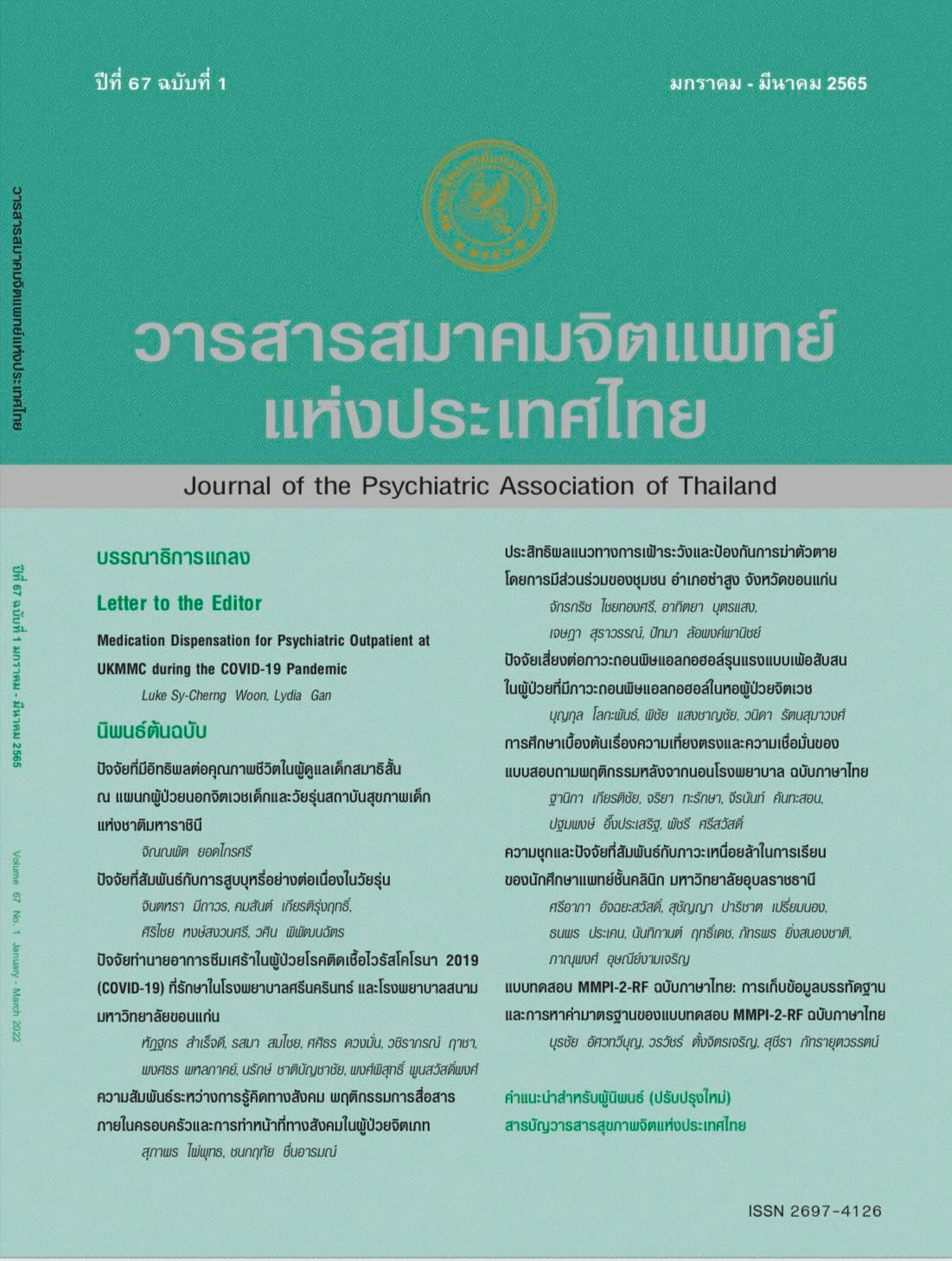A Pilot Study for Validity and Reliability of the Post Hospitalization Behavior Questionnaire – Thai version (PHBQ-Th)
Main Article Content
Abstract
Objective: To translate post-hospitalization behavior questionnaire (PHBQ) from English to Thai language and to evaluate validity and reliability of the instrument.
Method: The study consisted of two parts. Part I included translation using back-translation method with bilingual test. The PHBQ is comprised of 27 items, reported with five response options of a Likert-type scale. Part II included evaluation of the instrument. The subjects were children aged 2-12 years who received behavior assessment between 7 and 14 days after hospitalization. We compared the result of the questionnaires answered by parents with behavioral and emotional assessments interviewed by child and adolescent psychiatrist and pediatric psychologist. The interview assessment focused on 6 subscales: 1) general anxiety, 2) separation anxiety, 3) sleep anxiety, 4) eating disturbances, 5) aggression, and 6) apathy-withdrawal. The instrument was evaluated for its validity, reliability and feasibility.
Results: Thirty-three subjects were included in the study. Sixteen patients (48.5%) showed regression behavior in at least 1 subscale. We found moderate concurrent validity in eating disturbances subscale (Spearman’s correlation = 0.462, p = 0.007). Concurrent validity was not statistically significant in other subscales. Reliability was good, measured by internal consistency with Cronbach’s alpha of 0.840 for total score. The average time to answer was 3.35 minutes.
Summary: The Thai version Post-hospitalization behavior questionnaire has good reliability. However, concurrent validity was significant in only eating disturbances subscale. Further development of the questionnaire is required to increase validity in all subscales and suit for Thai culture.
Article Details

This work is licensed under a Creative Commons Attribution-NonCommercial-NoDerivatives 4.0 International License.
Articles submitted for consideration must not have been previously published or accepted for publication in any other journal, and must not be under review by any other journal.


